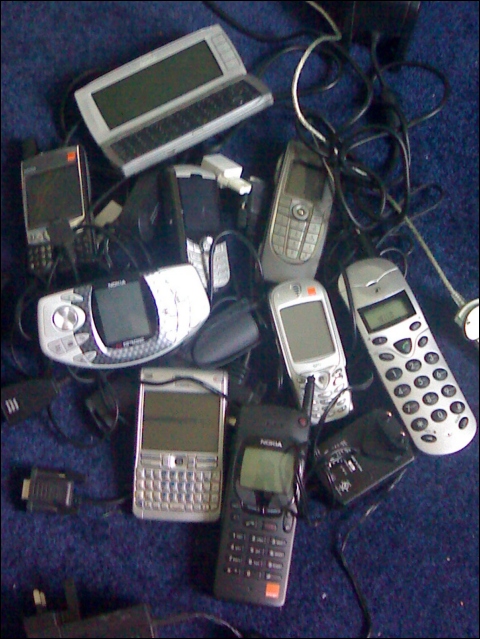 For a long time, I would devour every line of a feature spec, trying to work out which would be the perfect smartphone for me, what I should be working on getting next. But the feeling has died down in the last few months.
For a long time, I would devour every line of a feature spec, trying to work out which would be the perfect smartphone for me, what I should be working on getting next. But the feeling has died down in the last few months.
I’m looking forward to seeing how the W950i works with UIQ 3, and how it compares to the N91, but ask me if I’m as excited as a kid on Christmas morning, and I’d have to say no. It’s more than professional interest, and I can still appreciate the new devices, it just seems to have transcended lust into something more practical.
For me, the smartphone has now become a commodity, a tool, something that I have with me in everyday life. Rafe asked me last week which phone I’m looking forward to, and the simple answer is that nothing is getting me bouncing up and down with excitement anymore. That’s not to say that I’m done with smartphones, far from it. It just means that, in my head, they have moved away from being ‘geeky’ to something that is an everyday object.
It’s not going to matter hugely to me which device I have in my pocket, they all seem to be able to do the job equally well. What’s more important to me is that I can have the data that I want on my phone with me. Thanks to the renewed focus on polishing synchronisation from Symbian, Nokia, Sony Ericsson over the last year, I’m confident that my PIM data on my PC is going to move into whatever phone is plugged into the USB cable, get edited on the phone, and then return to the PC.
And when I step back and look at this, this is exactly what the manufacturers want. They don’t want the phones to be seen as toys for the boys. They need to be something that everyone feels they need but are more than happy to see them as disposable, for two reasons. Firstly, it means that you can tap into a market that is used to replacing their phone every 12-18 months (which means a nice constant revenue stream). Secondly, you can have one baseline of software (Symbian), and your variations are in the styling and fashion of transient designs. From a technical point of view, this makes support incredibly easy. From a sales and marketing point of view, it’s the best way to maximise profit. It also means people are not going to be on an upgrade treadmill (eg the Psion 3 was superceeded by the 3a, the 3c and then the 3mx, and it was obvious to everyone). Now, when you find a phone with a good fit, there's less pressure to upgrade.
Long ago, when Symbian was first mooted, they promoted the idea of a mobile Operating System that would be able to significantly lower costs to the manufacturer, to provide a constant platform to developers, and to give end users a reliable phone. These are all coming to fruition, and the market is coming towards Symbian. In the real world, this ability to do the majority of the main functions on any device is, very subtly, going to be something the market and the buying public embraces. Someone can now be confident that when they pick up a smartphone from the Symbian pool of manufacturers it’s going to do the job it was designed for, with little fuss, in an intuitive way.
And that gets me excited.
